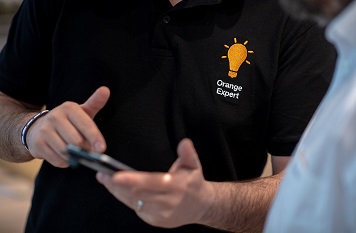From the inside out – Digital ID
Published: August 8, 2025
Helping inclusive growth through Digital ID
“A digital ID is the electronic equivalent of an individual’s identity card. A digital ID can be presented electronically to prove an individual’s identity and their right to access information or services online” (Definition by DocuSign.com)
How is Digital ID a real added value?
Digital ID is an incredible innovation that allows civic and social empowerment, as well as inclusive economic gains. This process bolsters economic value by stimulating inclusion that contributes to a greater access to goods and services. This, by extension enhances formalization, thus diminishes fraud, protects rights and increases transparency. This whole virtuous circle benefits from the promotion of digitization, which leads to efficiency and ease of use.
Individuals can use identification to interact with businesses, governments, and other individuals.
In April 2019, the McKinsey Global Institute conducted a research demonstrating how Digital ID creates value to the society and how it stimulates inclusion.
Through their analysis, McKinsey Global Institute explains they can quantify the benefits of digital ID through nearly 100 ways of using digital ID!
As they pointed out, the four largest contributors to direct economic value for individuals globally are:
- Increased use of financial services
- Improved access to employment
- Increased agricultural productivity
- Time savings
The five largest sources of value for institutions—in both government and the private sector—are:
- Cost savings
- Reduced fraud
- Increased sales of goods and services
- Improved labor productivity
- Higher tax revenue.
With great power comes great responsibility
However, it does not stand out dealing with risks. The same way large-scale usage digital technologies do, Digital ID faces risk exposure. Without proper controls, this technology might be unhealthy to data security, whether we’re talking about public or private sectors.
Digital ID, if viciously designed, could lead to behaviors against moral ethic. Antonym to the interests of public or private sectors. Potential motivations could include financial profit from the collection and storage of personal data, political manipulation of an electorate. It can also include social control of particular groups through surveillance and restriction of access to uses such as payments, travel, and social media.
To sum up, Digital ID is a major innovation for individuals, as it is for public and private sectors. The technology has come to a point where it is ready and more affordable than ever: a great opportunity for everyone.
This being said, all players from governments, business, and civil society should consider the inherent responsibility it represents, as they shape Digital ID solutions.

Orange brings its expertise
With its thousands of kilometers of submarine cables, fiber optics and mobile network, Orange is already enabling millions of people to connect to the world and their loved ones. Beyond connectivity, a multitude of online services are already running.
Everyone can look up their favorite services, bank, insurance and administrative services. Businesses can interact with the services of other businesses nearby or on the other side of the world. Online training and teleconsultation can be developed even in remote locations. Teleworking, while remaining connected with coworkers or clients, allows flexibility and ultimately the opportunity for an alternative lifestyle, far from traditional urban concentrations.
Thus, Digital Identity is the first key to opening the door to these services, which are intended to benefit as many people as possible, not just urban inhabitants in technologically advanced countries. Orange offers third party service providers a Digital Identity that enables secure, unified access to these services and provides a seamless experience.
How ?
For example, Orange ID, the API-based solution that simplifies and secures the phases of identification or creation of online customer accounts, was recently launched by Orange France.
In addition, Mobile Connect, an identification solution using the mobile’s SIM card, is available in France and Spain. It is currently being deployed in several countries in the MEA zone.
Explore the links below:
Le digital au service de l’Homme – Orange
Widespread adoption of digital ID could boost economic growth – Computer Weekly



